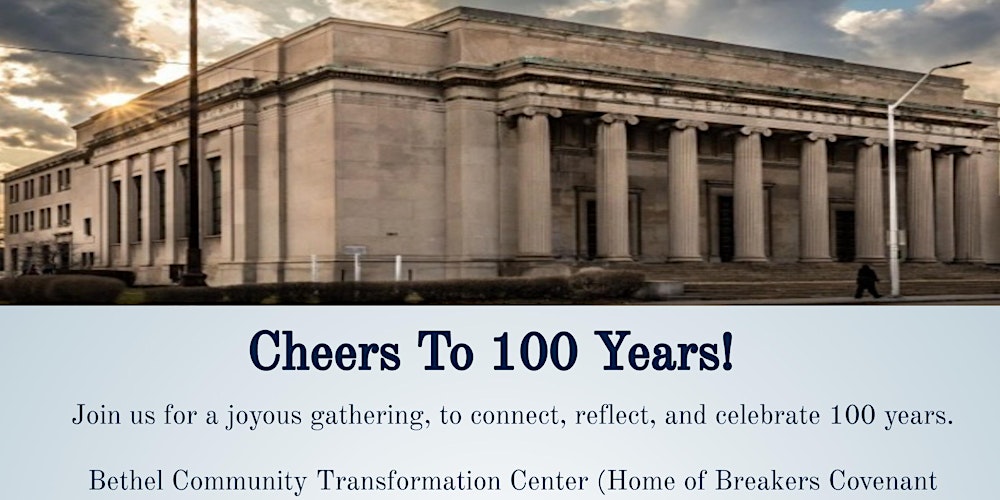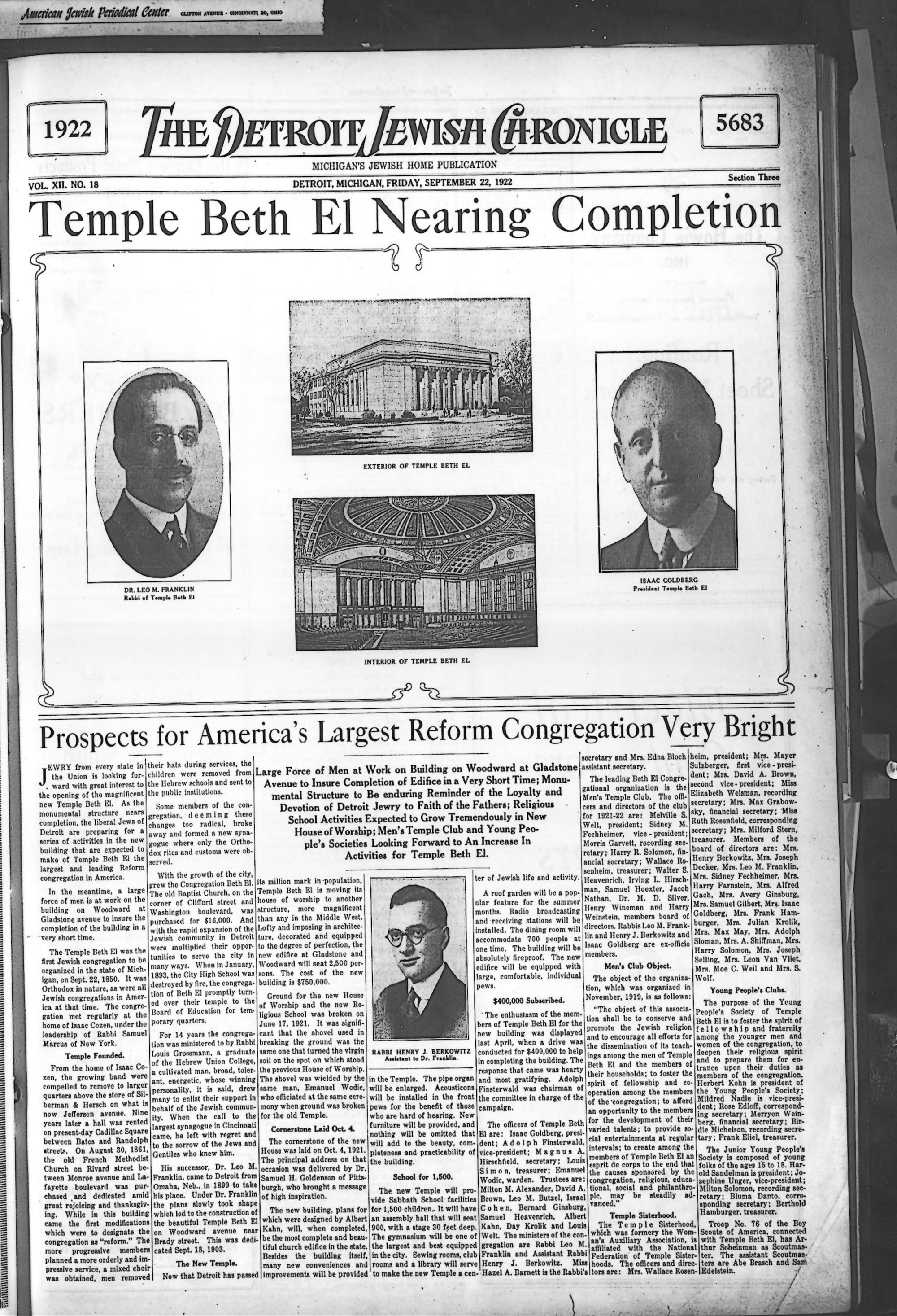“Now that Detroit has passed its million mark in population, Temple Beth El is moving its house of worship to another structure, more magnificent than any in the Middle West. Lofty and imposing in architecture, decorated and equipped to the degree of perfection, the new edifice at Gladstone and Woodward will seat 2,500 persons. The cost of the new building is $750,000.”
One hundred years after that story ran in the Detroit Jewish Chronicle, I happened to run into Pastor Aramis Hinds, a friend of some years, who is the Executive Director and senior clergyman at Breakers Covenant Church International (home of the Bethel Community Transformation Center.) Pastor Hinds knows me primarily as a frequent docent bringing many Jewish folks through his building. We were also together last spring on a Black-Jewish tour of Detroit.
But why did he know me as a docent to his church? Because Breakers is housed in the building metropolitan Detroit Jews refer to as the "Old Temple Beth El." This term is used in the same way that the house down the street which used to belong to the Shapiro family, who moved away years ago, is still referred to as The Shapiro House.
Jewish Historical Society of Michigan takes tours to the "Old TBE" not only for nostalgic reasons but because the building itself is an amazing historic edifice designed by Albert Kahn, one of America's most influential industrial architects. Albert Kahn is beloved for his iconic Detroit and Ann Arbor buildings including the Fisher Building, Detroit Athletic Club, Hill Auditorium, and of course, the "Old Temple Beth El" on the corner of Gladstone and Woodward.
So when Pastor Hinds and I saw each other, he enthusiastically told me that his building was in its 100th year and he wanted to celebrate. Of course I was in. As was Rabbi Mark Miller of Temple Beth El — eager to celebrate the former home of his congregation. And Rabbi Asher Lopatin from JCRC/AJC — thrilled to be a part of the celebration and to highlight the amazing community work taking place in the building at this time. The Downtown Synagogue, a frequent interfaith collaborator with Breakers, wanted to be a co-sponsor. The Albert Kahn Legacy Foundation also signed onto the centennial.
Established in 1850, Temple Beth El moved into its first Kahn-designed building on Woodward (later the Bonstelle Theatre) by 1920. Even ten years earlier, most of the congregants had migrated to Detroit neighborhoods north of the Bonstelle location. There were more than 800 member families at Temple Beth El in 1922 when the new building was finished. The neighborhood — decades before being rebranded as Midtown — was the hub of Jewish life in Detroit. The congregation moved into its new digs in 1923. Temple Beth El had a vigorous Jewish presence at the Woodward location from 1923-1973 when the congregation moved to their present location on Telegraph Road.
Breakers Covenant Church International now owns the magnificent 55,000 square-foot building — a blessing for Pastor Hinds and a challenge for his congregants to maintain. Before Breakers was able to purchase the space much had deteriorated in the building. It saddened many people on our tours over the years as we witnessed the leaks in the roof, problems with the heating and cooling systems, and other problems. But always, the amazing design shone through and especially in recent years, extraordinary spiritual and uplifting programs have been held in this space. In fact, the building has recorded a number of ceremonies and programs important to Jews and Christians, people of other religions and different races.
The sanctuary produces the Wow! when people see it, but the building also boasts a social hall, gymnasium and auditorium. The ceiling in the sanctuary is a work of art. Myron Barlow, a Jewish painter raised in Detroit, produced the ceiling frescoes in his studio in France.
Thanks to the stewardship of Breakers and their many community partners, we can celebrate the centennial with a commitment to the history and preservation of the Albert Kahn design, a tribute to the relationships developed over the years — and a vision for the future of the space and all who dwell there.
Please join us on Sunday, December 11, to celebrate:



Comments
Sign in or become a Nu?Detroit member to join the conversation.
Just enter your email below to get a log in link.